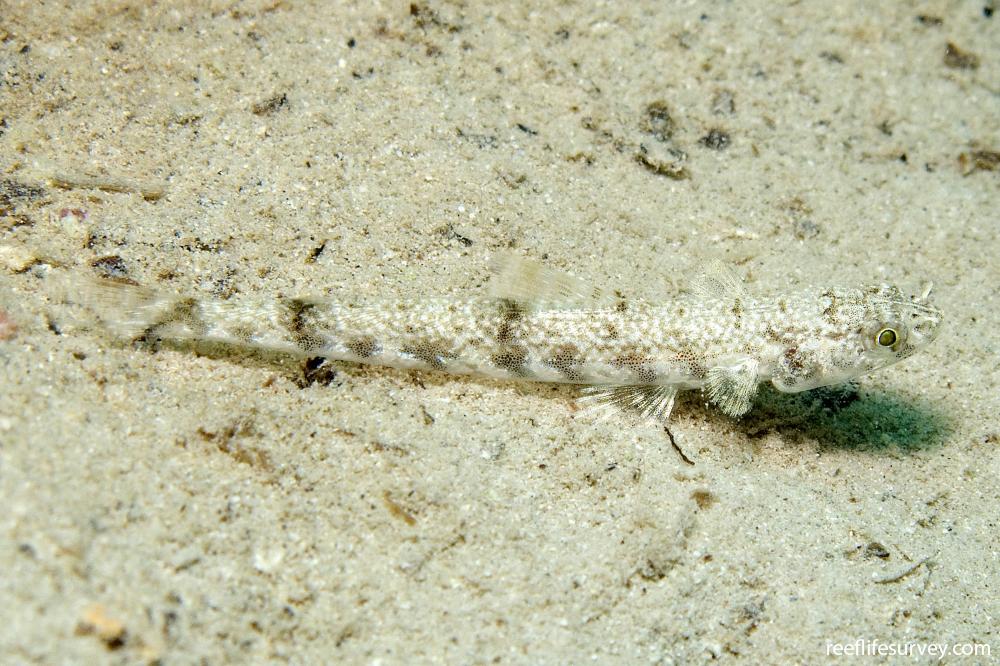Saurida nebulosa
Clouded Saury | Blotched Grinner | Blotched Saury | Clouded Lizardfish | Nebulous LizardfishSimilar Species
Same Genus
Distribution
Temperate Australasia, Tropical Indo-Pacific
Description
Very difficult to separate from S. gracilis (gracile saury), but has a slightly longer gap between the front of the dorsal fin and the furthest rear extent of the folded back pectoral fin (requires expert advice and high quality photos). This species is much more commonly seen by divers around Australia than S. gracilis. Distinguished from Synodus lizardfish species by number of pelvic fin rays (9 rather than 8), but field identification based on less distinct or bright markings, and prominence of 3 dark bars over rear of body (the last on tail base).
Information
Max Size: 17 cm
Sea Temperature Range: 23.2-31.1°C
Depth: 0-100m
Habitat Generalization Index: 7.19
Also referred to as the SGI (Species Generalisation Index), this describes the habitat niche breadth of the species. Species with values less than 15 are found in a relatively narrow range of reef habitat types (specialists), while those over 25 may be found on most hard substrates within their range (generalists). Learn more here.
Conservation and Rarity
IUCN Status: Not Evaluated
Occurrence: Frequent (11.8% of sites)
Occurrence describes how often the species is found on surveys within its distribution. It is calculated as the % of reef sites surveyed by RLS divers across all the ecoregions in which the species has been observed
Abundance: Few (3 per transect)
Abundance is calculated as the average number of individuals recorded per RLS transect, where present.
Edit by: Andrew Green


















